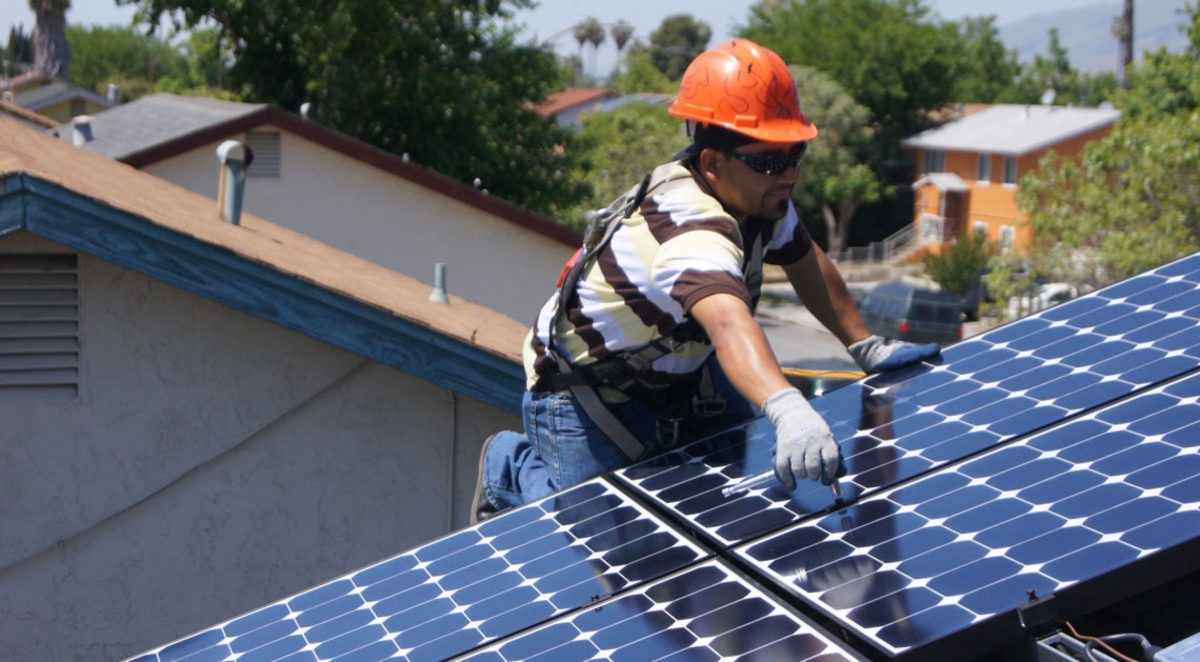From pv magazine USA
The US Inflation Reduction Act (IRA) of 2022 is law, and with it is the expectation of a new era of unprecedented growth in the solar industry. Inside the massive energy, climate, and tax bill is $600 billion in spending, $370 billion of which is focused on supporting renewable energy buildout and climate resilience. The spending will be supported by closing tax loopholes on ultra-wealthy Americans and corporations.
The IRA mandates a reduction of carbon emissions by roughly 40% in 2030. The bill is “long overdue and a necessary step to ensure the United States takes decisive action on the climate crisis that helps our economy and provides leadership for the world by example,” said former Vice President Al Gore.
One of the most significant provisions in the IRA was something the industry had been calling for all year: a long-term extension of the Investment Tax Credit. The bill mandates a 10-year extension of the tax credit at 30% of the cost of the installed equipment, which will then step down to 26% in 2033 and 22% in 2034. The 30% credit will be retroactively applied to anyone who installed their system since the beginning of 2022.
Informational site SolarReviews, home of the residential Solar Calculator, surveyed more than 3,000 installer partners about the impact on their businesses following the passage of the IRA, and 95% of respondents said they anticipate their companies to grow now that the historic package is law.
Residential solar installation companies alone are likely to add an additional 340,400 workers over the next five years, said SolarReviews. This is an estimated 148% increase among installation companies alone in just five years.
The IRA may also be accelerating at-home electric vehicle (EV) charging goals. About 86% of respondents said they already offer EV charging solutions, and after the passage of the IRA, 46% of respondents who do not currently offer EV charging now plan to in the future.
More than 95% of the respondents said the long-term extension of the Investment Tax Credit was the most beneficial part of the bill to their business. This was followed by the energy storage tax credit and EV tax credits as the biggest boon to installers.
When asked to select the biggest challenges facing their business today, 58% said acquiring new customers was a key challenge. This was followed by hiring installation labor (40%), acquiring stock (28%), cashflow issues (21%), and hiring a salesforce (11%).
Mary Powell, the CEO of Sunrun, issued a statement on the passage of the IRA:
“What an historic moment for our country. Sunrun applauds everyone in Congress and the Biden Administration who helped accomplish this major step forward for humanity. The Inflation Reduction Act will combat inflation, lower energy prices and help our country meet its climate goals. It will boost US manufacturing, create millions of good-paying jobs, expand access and equity for those who need it most, and improve grid stability and resilience. The need for families to take control of their energy and for broader US energy independence has never been clearer. All of us at Sunrun are focused on scaling as fast as humanly possible to provide customers with a more affordable, clean and resilient way to power their homes and lives.”
This content is protected by copyright and may not be reused. If you want to cooperate with us and would like to reuse some of our content, please contact: editors@pv-magazine.com.




By submitting this form you agree to pv magazine using your data for the purposes of publishing your comment.
Your personal data will only be disclosed or otherwise transmitted to third parties for the purposes of spam filtering or if this is necessary for technical maintenance of the website. Any other transfer to third parties will not take place unless this is justified on the basis of applicable data protection regulations or if pv magazine is legally obliged to do so.
You may revoke this consent at any time with effect for the future, in which case your personal data will be deleted immediately. Otherwise, your data will be deleted if pv magazine has processed your request or the purpose of data storage is fulfilled.
Further information on data privacy can be found in our Data Protection Policy.